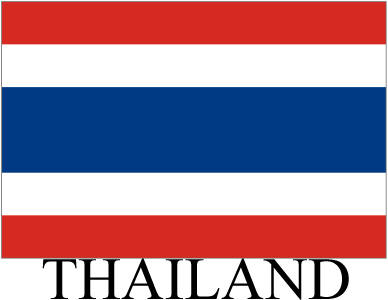hailand keeps emergency law in place
 Bangkok - The Thai cabinet decided Friday to keep Bangkok and its surrounding provinces under emergency law until peace is fully restored to the capital, which was rocked by violent clashes between protestors and authorities earlier this week.
Bangkok - The Thai cabinet decided Friday to keep Bangkok and its surrounding provinces under emergency law until peace is fully restored to the capital, which was rocked by violent clashes between protestors and authorities earlier this week.
Thai Prime Minister Abhisit Vejjajiva said the state of emergency would be maintained "for as short a period as possible, in order to restore peace and normalcy in Bangkok and its neighbouring areas."
On Monday red-shirted protesters belonging to the United Front for Democracy against Dictatorship (UDD) went on a rampage in Bangkok, blocking streets and burning public buses in an attempt to overthrow the Democrat-led government of Abhisit.
Over the weekend the red-shirts, supporters of fugitive former premier Thaksin Shinawatra, raided the venue of a regional summit in Pattaya beach resort, forcing Abhisit to cancel the event.
Abhisit declared emergency law on Sunday in Pattaya and Bangkok and mobilized troops against the protestors who finally ended the mayhem Tuesday when three UDD leaders gave themselves up to authorities after 123 people has been injured and two killed - reportedly in fights between red shirts and residents annoyed by the violent turn of the protests in their neighbourhoods.
There are currently about 34 UDD leaders and followers under arrest for violating the emergency law, and arrest warrants have been issued for a handful of other protest leaders including Thaksin, who was in Dubai during the upheaval, calling for a "people's revolution" in the kingdom.
Although Abhisit has won praise for restoring peace to the capital without more widespread bloodshed, there is little doubt that the political situation in Thailand remains fragile.
"Thailand still stands at a precarious juncture," Democrat Party spokesman Buranaj Smutharaks said.
Abhisit has called a joint session between the upper and lower houses of parliament on April 22 -23 in an attempt to resolve the country's ongoing political crisis.
But the Puea Thai opposition party, which backs the UDD, is not expected to cooperate.
"At present the Puea Thai Party has threatened that even though violence has subsided the UDD movement would go underground and probably become a resistance movement," Buranaj said.
On Friday, armed assassins attempted to kill Sondhi Limthongkul, a key leader of anti-Thaksin protests last year that culminated in the seizure of Bangkok's two airports, causing the country to lose unknown billions in forfeited tourism and export revenues.
Abhisit said the decision to maintain the emergency law was unrelated to the attack on Sondhi, who survived a hail of bullets on his car with minor injuries.
Behind both the Puea Thai and UDD is Thaksin, prime minister between 2001 to 2006, whose populist policies won him a mass following among Thailand's rural and urban poor, many of whom still see him as a catalyst for change in the country's stratified status quo.
Thaksin, in interviews with the foreign media in Dubai, called on Thai King Bhumibol Adulyadej, 81, to intervene in the political crisis, presumably by granting him an amnesty.
"We believe that his intention is to demonstrate that in the case of royal intervention only he has the ultimate moral authority over the red shirts' actions," Buranaj said.
Thailand has been a democracy under a constitutional monarchy since 1932. Under the constitution the king is to remain above politics.
King Bhumibol, whose reign has lasted 62 years, is widely revered among the vast majority of Thai people for his lifelong development works and use of moral force to resolve past political crises without resorting to direct intervention.
Thaksin, in his phone addresses from abroad, has accused the king's Privy Council, military and judiciary of conspiring to oust him from power in the September 19, 2006, coup.
The former billionaire telecommunication tycoon has been living in self-imposed exile since August, 2008, and faces a two-year jail term in Thailand on an abuse of power charge. Thai authorities have frozen about 2 billion dollars of the Shinawatras' cash in Thai banks pending further corruption investigations.(dpa)